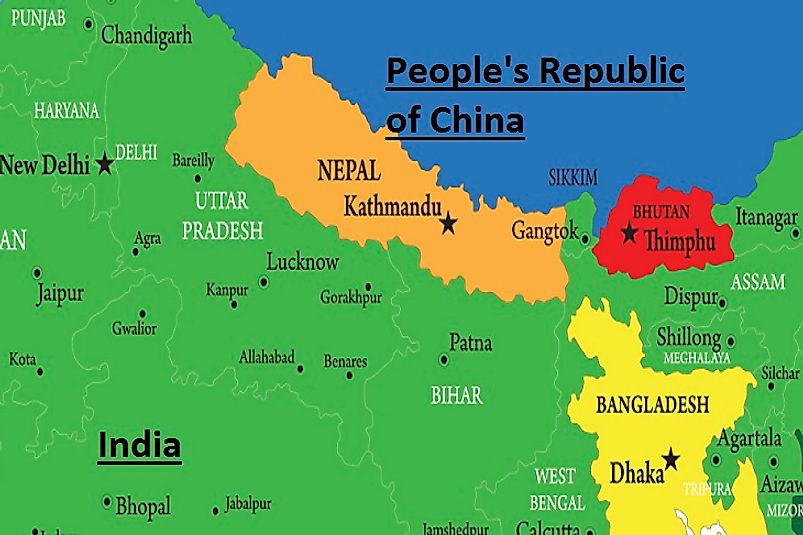What Is The Definition Of A Buffer State?

Definition
A buffer state is an area lying between the borders of two powerful and potentially hostile powers. Armed forces of either of the rival powers do not exist in the buffer area, and war often ensues when either or both of the powers try to invade the territory of the buffer state. Still, the existence of a buffer state may allow for the rival countries to solve their problems through peaceful negotiations and diplomatic actions instead of engaging in direct armed warfare.
Historical Examples
The concept of buffer states surfaced in the 17th Century, when the then major Europeans powers of England, France, Spain and Portugal started exploring and exploiting vast tracts of land on foreign continents, and establishing their own empires in such areas. Since the colonial empires of these powers often approached each others at close quarters, thereby increasing the chances of conflict, the powers decided on leaving certain areas in between the empires unconquered to act as a "buffer". These areas, or buffer states, were left to local governance by the natives, and helped maintain the balance of power. Often, these historic buffer states were created as a result of the presence of natural barriers along imperial extensions, such as tall mountains or dense, dangerous forests, or even exceptionally violent-natured native inhabitants. For example, Afghanistan acted as the buffer state between the Russian Empire to the north and the British Colonial Empire (in what are now India and Pakistan) to the south. Siam (between the British Colonial Empire in south Asia and French Indochina) and the colony of Georgia (separating Spanish-controlled Florida from the British-controlled American colonies), were other notable examples of buffer states during the colonial era.
Modern Buffer States
To prevent wars and conflicts, many modern day states across the world have been given the status of buffer states. Even though Nepal and Bhutan have their own systems of governance and armed forces, these countries might be regarded as buffer states between India in the south and China in the north. Since tensions between India and China continue to exist, and there is a record of Sino-Indian wars being fought as recently as 1962 along the China-India border, the importance of Nepal and Bhutan as potential buffer states becomes quite clear. Poland and other east European countries have often been treated as buffer states between Russia and the Western European nations. There has also been several high level diplomatic talks about labeling Ukraine as a buffer state between Russia and the NATO bloc. However, both Poland and the Ukraine are unhappy about such proposals, as neither wish to be treated as buffer states.
Strategic Importance
In today’s highly complex geopolitical world, buffer states serve an important role by keeping warring factions at a safe distance from each other. Rival powers that cannot trust each other and live side by side are provided space to breathe by these buffer states. Buffer states provide strategic depth to the rival powers, allowing them to measure their opponent’s future moves without directly putting their own territories at stake. Unfortunately, the buffer states usually bear the brunt of the first attacks, giving the powerful entities on either side time to prepare against their rival. Therefore, from the perspective of a buffer state, things often seem less than ideally secure. Being a buffer state puts a nation in danger, as ofttimes warring factions will use the buffer state to launch their initial attacks against each other. The powerful entities also often try to influence the domestic policies of the buffer state, hampering its own independent nature.
International Trade Dynamics
Buffer states play a highly significant role in influencing international trade dynamics. These states act like a handshake between the rival factions, a places wherein the exchange of goods between two rivals can occur by keeping the buffer state as a ‘middle-man’. Exchange of trade via a buffer state allows the growth of the buffer state’s economy, as well as benefiting the respective economies of the rival powers.











